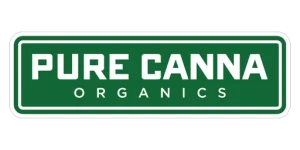Why did Hawaii ban CBD?
In recent years, Hawaii has taken some of the strictest regulatory actions in the U.S. against hemp-derived CBD, including banning sales of CBD gummies, beverages, vapes, and edible products. As a regulatory consultant with direct experience guiding states through cannabis and hemp frameworks—and engaging with Hawaii’s Department of Health and stakeholders—this article distills the key reasons behind these moves and what they mean for consumers and businesses.
1. Public Health Concerns Over Intoxicating Hemp Products
Hawaii’s government identified a proliferation of hemp products containing intoxicating forms of THC—such as Delta-8/Delta-9—in tourist-heavy retail outlets. These items, often mislabeled, raised alarms over consumer safety, especially among minors.
Local legislators described this trend as an “epidemic of unregulated hemp outlets” selling mislabeled THC vapes, edibles, and other intoxicants. As a result, lawmakers passed measures empowering law enforcement to shut down unauthorized hemp stores and ban synthetic cannabinoids.
2. Confusion Between Medical Cannabis and Hemp
Hawaii has operated a medical cannabis program since 2000, but still bans adult-use cannabis. The confusion between medical-grade cannabis and hemp-derived products added complexity. Unregulated hemp products—with THC—were competing directly with licensed dispensaries, undermining medical regulations
3. Hospitalizations and Safety Incidents
The state’s health department explicitly linked hospitalizations—especially related to vaping—with unregulated CBD and hemp products. This prompted officials to remove CBD items from store shelves to prevent further public health risks .
4. Compliance with FDA and State Food, Drug, and Cosmetic Laws
Hawaii’s Department of Health emphasized that adding CBD to foods, beverages, or cosmetics is illegal under both federal (FDA) and state law. The regulations consistently affirm that hemp-derived CBD cannot be used in those categories without regulatory approval or prescription.
5. Future Regulatory Framework for Hemp Products
Hawaii is moving toward a highly regulated hemp program. Legislation introduced in 2025 (HB 1482) requires:
- Permit and registry for hemp retailers and distributors
- Age restrictions (21+) on tincture sales
- Inspection powers and authority to seize unregistered products.
Administrative rules (HAR 11-37) also ban:
- Smokable hemp and vape products
- Gummies and beverages
- Synthetic cannabinoids.
Final Analysis: Why Hawaii Took These Steps
Hawaii’s CBD ban stems from a combination of:
- Protecting public health against mislabeled THC-laced products
- Closing loopholes that allowed unregulated hemp outlets to undercut licensed medical cannabis
- Responding to safety incidents, including vaping-related hospitalizations
- Aligning with FDA and state laws on unapproved CBD additives
- Transitioning to a tightly regulated hemp marketplace requiring permits, testing, and enforcement
What This Means for Consumers and Businesses
- Consumers: Over-the-counter CBD gummies, beverages, and vape products are currently banned. Only medical cannabis dispensaries (CBD via prescription) are legal channels.
- Businesses: Must transition to compliant products like tinctures, topicals, tablets, and oils, all under registration and lab testing by January 2026.

